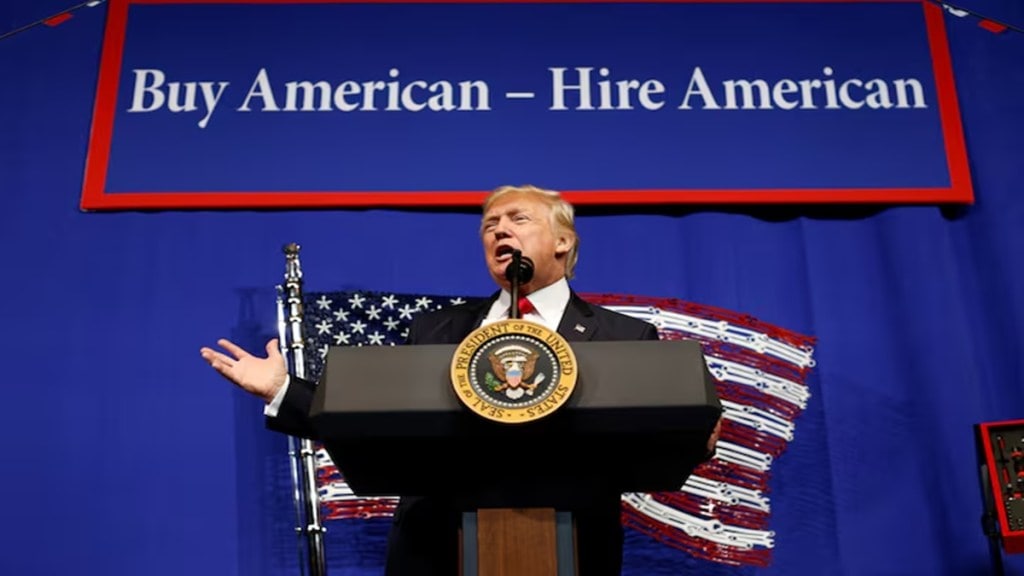H-1B visa cap lottery season 2027 will be significantly different compared to previous selection processes. H-1B visa aspirants face a twin blow as the petition fee of $100,000 has kicked in, and a new selection process is being proposed.
The U.S. Department of Homeland Security (DHS) has published ‘Weighted Selection Process for Registrants and Petitioners Seeking to File Cap Subject H-1B Petitions’ in the Federal Register on September 24, 2025, and invited comments and feedback on the proposal.
The proposed ‘weighted selection process’ aims to prioritize the allocation of H-1B visas to higher-skilled and higher-paid foreign workers. If the proposal is approved, which is highly likely, the chances of obtaining H-1B visas for low-paying or lower-skilled positions will decrease.
Existing Selection Process for H-1B Visa
Under the existing H-1B registration process, prospective petitioners or registrants seeking to file H-1B cap-subject petitions must first electronically register for each prospective beneficiary.
The US companies are the petitioners and the foreign employees are the beneficiaries.
USCIS then runs the H-1B selection process, also called the H-1B lottery, to randomly select unique beneficiaries ( foreign employees) based on properly submitted electronic registrations.
If the unique beneficiary is randomly selected, then each registrant ( US company) that registered for that beneficiary receives a registration selection notice and may file an H-1B cap-subject petition on their behalf.
New H-1B Proposal
DHS proposes to amend the process through which it selects registrations for unique beneficiaries to move away from a purely random selection process or lottery to a weighted selection process.
The proposed ‘weighted selection process’ aims to incentivizes employers to offer higher wages, or to petition for positions requiring higher skills and higher-skilled aliens, that are commensurate with higher wage levels.
OEWS Wage Level
OEWS wage level will be the most important factor in selecting H-1B visas. Specifically, the proposal would weight registrations (or petitions) for selection generally based on each beneficiary’s equivalent wage levels.
The weighted selection of H-1B petitions will be generally based on the highest Occupational Employment and Wage Statistics (OEWS) wage level that the proffered wage equals or exceeds for the relevant Standard Occupational Classification (SOC) code and area of intended employment.
Essentially, the ranking and selection are to be based on wage levels. USCIS would rank and select registrations based on the highest OEWS wage level, starting with OEWS wage level IV and descending to OEWS wage levels III, II, and I. The proffered wage is the wage that the employer intends to pay the beneficiary.
Weighted Selection Process
Under the proposed Weighted Selection Process, registrations for unique beneficiaries or petitions would be assigned to the relevant OEWS wage level and entered into the selection pool as follows:
Registrations for unique beneficiaries or petitions assigned wage level IV would be entered into the selection pool four times,
Those assigned wage level III would be entered into the selection pool three times,
Those assigned wage level II would be entered into the selection pool two times, and
Those assigned a wage level I would be entered into the selection pool one time.
Each unique beneficiary would only be counted once toward the numerical allocation projections, regardless of how many registrations were submitted for that beneficiary or how many times the beneficiary is entered in the selection pool.
Impact on the H-1B program
The H-1B program offers 85,000 annual visas for specialty occupation workers, including 20,000 reserved for advanced U.S. degree holders. The proposed Weighted Selection Process seeks to allocate limited H-1B cap numbers to higher-skilled, higher-valued, or higher-paid foreign workers rather than allowing cap numbers for lower-skilled or lower-paid positions.
The other big setback for H-1B aspirants is the introduction of the $100,000 petition fee to be paid by a US employer for hiring a single foreign worker.
US has introduced at least two significant changes to the H-1B selection process that will impact the hiring of foreign workers by American companies. Both measures are expected to significantly alter the H-1B visa landscape beginning in 2026, coinciding with the start of the H-1B season for 2027.
